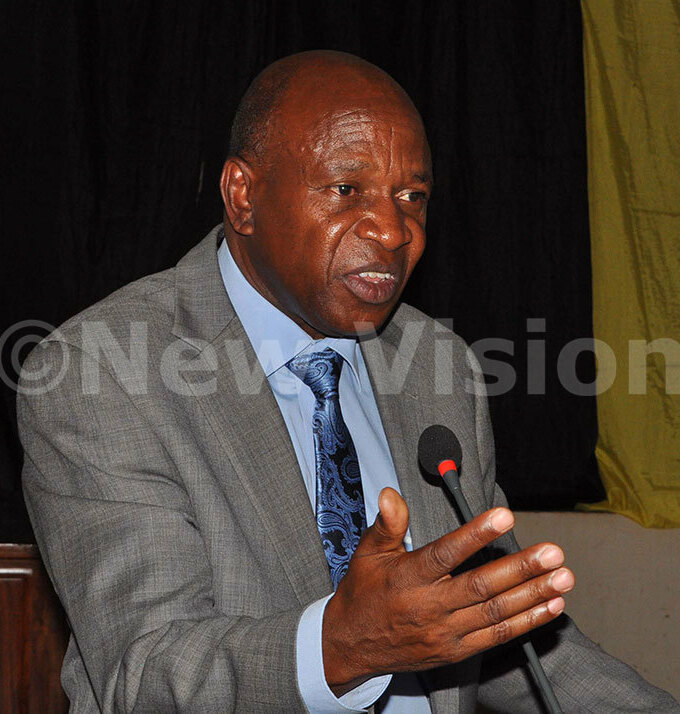Social media mooted as a teaching tool at universities
Research has shown how beneficial social media can be in terms of learning.
PIC: AFP File photo
SOCIAL MEDIA
KAMPALA- Ugandan Universities should consider adopting social media as a teaching instrument.
Lectures and course works could be recorded in videos and audio form for students and discussions held through teleconferencing or skype, the permanent secretary ministry of Information, Communication and Technology (ICT) has proposed.
Vincent Bagaiire argues that electronic devices such as smart mobile phones, ipads could be used with specific applications in education delivery.
 The acting Executive Director National Council for Higher Education (NCHE), Dr Alex Kagume speaking during the first annual conference on higher education held at Uganda Manufacturers Association (UMA) conference hall in Kampala on Wednesday, March 20, 2019. (Photo by Shamim Saad)
The acting Executive Director National Council for Higher Education (NCHE), Dr Alex Kagume speaking during the first annual conference on higher education held at Uganda Manufacturers Association (UMA) conference hall in Kampala on Wednesday, March 20, 2019. (Photo by Shamim Saad)
"ICT is informed by education. If indeed ICT is dynamic, why can't we change our education to be in line with technology. It's done in the western world," Bagiire said Wednesday morning in Kampala.
"We should use our innovation abilities to start using technologies in universities and encourage our students to innovate around our problems. Technology has more enormous opportunities we can take advantage of," Bagiire said.
He said once adopted, it would call for updated information sharing between the lecturers and students.
Bagiire made the remarks on Wednesday at the first annual conference on higher education themed: Mainstreaming ICT in research, higher education delivery and management.
Research has shown how beneficial social media can be in terms of learning. Through the various platforms, teachers can connect with students and incorporate social media into their lessons, making them more interesting, relatable and engaging.
Social sites are a great tool when it comes to interacting with students since it's something they are so familiar and frequently used sites in daily life.
The commonly used platforms in Uganda include: Facebook, WhatsApp, Twitter, WeChat, Instagram, Skype, Snapchat and Viber among others.
The National Council of Higher Education (NCHE) acting executive director Dr Alex Kagume backed Bagiire's proposal saying that "if social media connects people, it can also serve a purpose in our education sector," Kagume said.
At the same event, Uganda Communications Commission executive director, Godfrey Mutabazi, said the current generation has more opportunities than ever before to discover more, learn, create and transform a whole new world through inventions and technological advancement.
He regretted that a big number of Ugandans use social media for gossiping.
He told participants that once at Facebook headquarters in California he asked to see what Ugandans use Facebook for. When he was taken through the data, the gossip graph for Uganda was far above every country.
"We should move from a gossiping society to a researching and studying one. Like many developing economies, let us embrace ICT for socio-economic development," Mutabazi advised.
Universities speak out
Prof Steven Lawoko the dean of health science at Victoria University welcomed the introduction of social media to aid teaching but hastened to caution against its adoption before a rigorous pilot research is done.
"We should go slow. Are we looking at improving key competences from students? What are we trying to achieve? There is need to study the good and the bad side of it," Lawoko cautioned.
Bugema University Vice Chancellor, Prof. Patrick Manu said the move makes teaching easy and reduces administration costs. He, however said that ‘this very good move should not be polluted.'
Soroti University Vice Chancellor, Prof Ikoja Odongo said: "I agree totally. It makes life easy because students can learn without being in a lecture room."
It also calls for change of mindset, he noted.